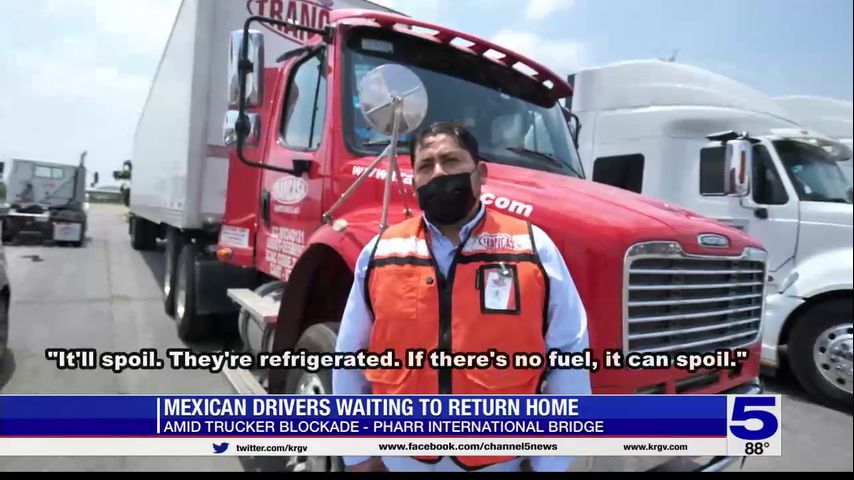Trucker blockade still in place at Pharr International Bridge
Truckers on the Mexican side of the Pharr International Bridge continued Tuesday to block northbound lanes to protest Gov. Greg Abbott’s enhanced commercial vehicle inspections order.
Due to the current blockade on the Mexican side of the bi-national port of entry, traffic control measures have been put in place, the city of Pharr said in a news release.
“Allowing any commercial vehicles to drive onto the southbound lanes of the Pharr International Bridge would create a gridlock and a safety hazard for drivers, since they currently do not have an outlet into Mexico,” the news release stated. “The Pharr International Bridge looks forward to a quick resolution of this issue so that business operations can get back to normal and the commerce in our region can continue to thrive.”
Video of the blockade shows a line of truck more than 18 miles long on the Mexican side of the bridge.
Last week, the governor ordered the Texas Department of Public Safety to conduct enhanced safety inspections of commercial vehicles coming into Texas from Mexico, a move aimed at stopping the smuggling of migrants, drugs and other contraband.
The directive comes after the Centers for Disease Control and Prevention announced the May 23 ending of Title 42, a Trump-era policy that allowed officials to turn away migrants at the border due to COVID-19 concerns.
Similar inspections are being implemented in three other border crossings with the state of Texas, according to a statement from the Mexican Secretariat of Foreign Affairs.
“It is estimated that only a third of the usual trade is crossing these four ports of entry,” the release stated. “Strengthening supply chains in North America is a top foreign policy priority for both countries. Consequently, the Government of Mexico has entered into communication with the Embassy of the United States in Mexico, as well as with the Departments of State and Homeland Security, and with the office of the Governor of Texas, to fully restore trade and identify alternatives that guarantee security on our shared border without harming binational trade."





